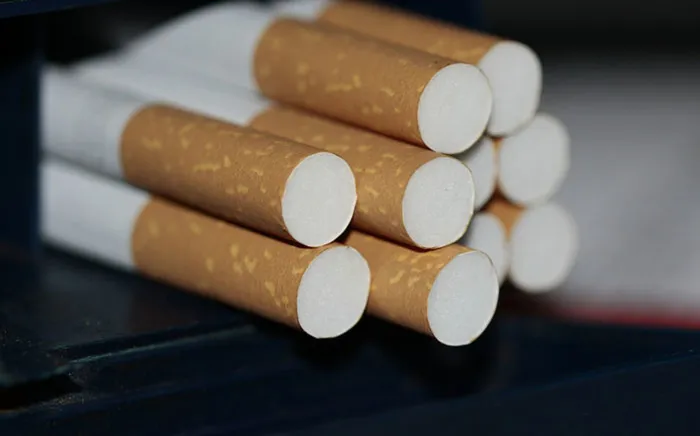Big tobacco urges government action to curb illicit trade and promote safer products
MANUFACTURING

The South African tobacco industry appears to be pulling in the same direction in demanding a conducive regulatory and policy framework, including favourable and separate taxation for new tobacco cigarettes.
Image: File photo
Tawanda Karombo
Big tobacco industry players in South Africa believe the government can speed up transition towards less harmful products and effectively end trade in illicit cigarettes with better regulatory and policy attention to bad practices across the sector.
Tobacco cigarette manufacturers British American Tobacco South Africa (Batsa) and Polaris Manufacturing (formerly Gold Leaf Tobacco Corporation) last week traded accusations of fueling trade in illicit tobacco cigarettes through under-pricing and imports.
This comes despite the industry touting new tobacco products such as pouches and e-cigarettes as key in reducing the harm caused by combustion cigarettes.
The South African tobacco industry appears to be pulling in the same direction in demanding a conducive regulatory and policy framework, including favourable and separate taxation for new tobacco cigarettes.
They say this will unlock fresh investments into the new tobacco products and encourage transition from combustible cigarettes that experts say are harmful.
This comes against the backdrop of growing adoption for the new products, according to Tommaso Di Giovanni, vice president for international engagements at Philip Morris International, who on Monday said uptake in South African cities such as Cape Town was picking up.
“We do see some product adoption in Cape Town. Some of these products like vapors are being adopted in Cape Town,” he said in an interview.
Di Giovanni feels though that the adoption of less harmful tobacco products in South Africa can be sped up with the adoption and implementation of the right policies.
“I think the progress could be much faster with the right regulation, with policies that encourage adoption,” he said.
Johny Moloto, the head of corporate and regulatory affairs at rival tobacco manufacturer Batsa, also emphasised that the harm from these new products was significantly reduced.
Moloto said that the harm in tobacco cigarettes comes “from the act of combusting the cigarette and the smoke it emits, which contains all those toxins that can impact the consumer's health” as well as that of passive smokers.
However, other stakeholders such as health experts and the World Health Organisation are opposed to this. They argue that the harm emanates from tobacco and from the nicotine that is also present in pouches and e-cigarettes and vapors.
Nonetheless, Batsa reckons that proper regulation of less harmful tobacco products can help accelerate the transition to a smoke free South Africa.
Moloto said the Tobacco Products and Electronic Delivery Systems Control Bill being pushed by South Africa was adopting an “almost prohibitive approach” as it was punitive than being an enabling policy.
“We hear that it will be self-enforcing [but] there's no enforcement instrument in that view.They want to put as part of that proposal, a ministerial Commission... if you give so much power to ministerial overreaching, the consequences could be very dire,” he said.
Both Batsa and Philipp Morris International say they are working on replacing traditional cigarettes with smoke-free products. Di Giovanni said the tobacco industry in South Africa was now shifting towards smokeless products.
Although Philip Morris International has a target of having two-thirds of its revenues coming from smoke-free products by 2030, it believes "it's important to expand the availability of the product" while countries such as South Africa had to ensure that investment friendly conditions for the industry were in place.
“Once the conditions are there, we will invest in commercial efforts, we will invest in communications, we will invest eventually in manufacturing where appropriate to make sure that people have access to the product. But again, the conditions needs to be there first,” Di Giovanni explained.
The South African Tobacco Transformation Alliance (SATTA) also feels that the South African government is putting the future of the entire tobacco industry at risk if it does not take swift action to end illicit trade in cigarettes.
Francois van der Merwe, spokesperson for SATTA, said expansion of the illicit sector was endangering the last remaining jobs in the industry and causing the government to lose out on potential tax revenue of approximately R28 billion annually.
“The solutions lie in greater cross-authority collaboration, a beefed-up SA Revenue Service presence in all cigarette factories, revoking licenses of those avoiding taxes and introducing a Minimum Retail Price of R37 for a pack of 20, which will make enforcement much easier for all law enforcement agencies,” said Van der Merwe.
BUSINESS REPORT